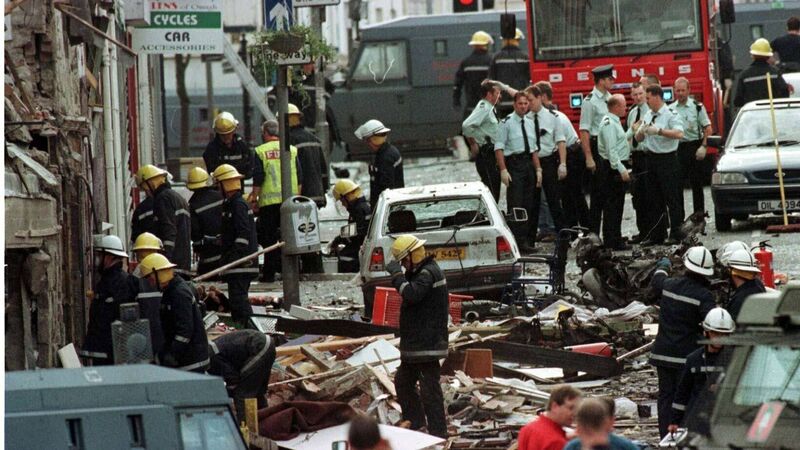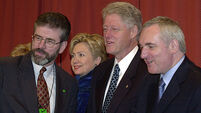State Papers: Adams and Ahern hoped 'some good' might come from Omagh bomb trauma

The Omagh bombing caused the single greatest loss of life of the Troubles. Photo: Paul Mcerlane/PA
Gerry Adams and Bertie Ahern hoped "some good" might emerge from the trauma of the Omagh blast in 1998 amid efforts to progress the peace process.
The National Archives also reveal that then-Taoiseach Bertie Ahern told Britain's Prime Minister at the time, Tony Blair, two weeks before the bombing in August 1998 that the Real IRA did not seem to be "overly active".













